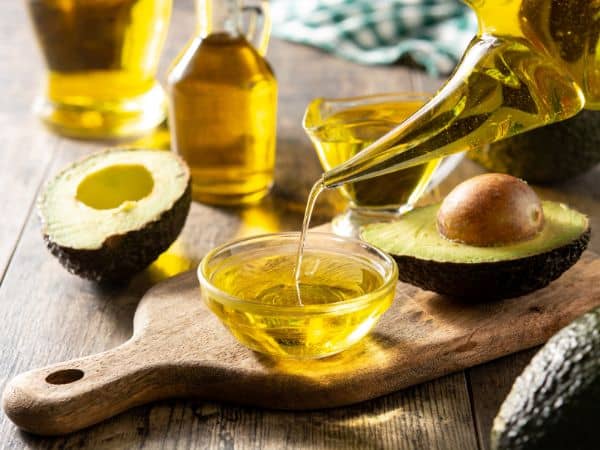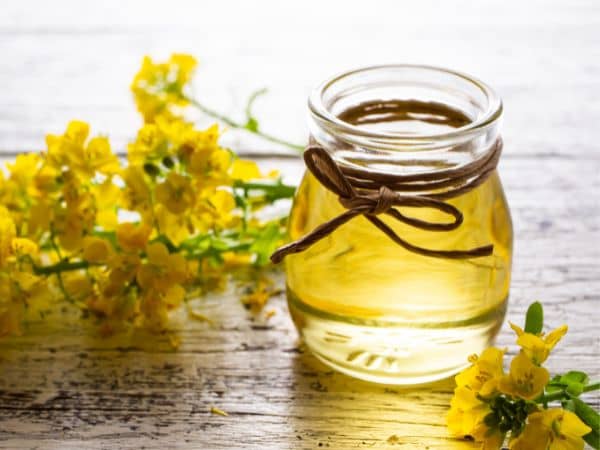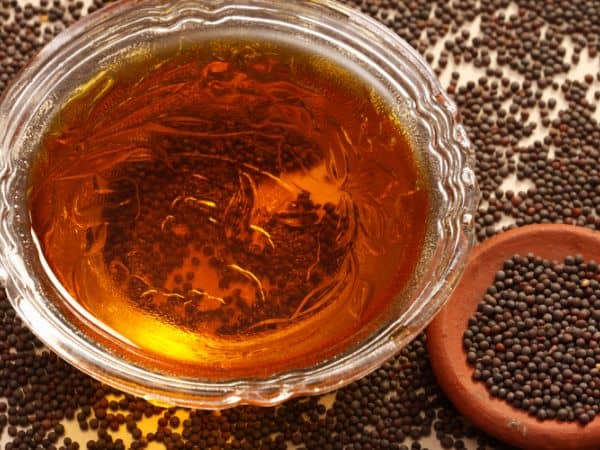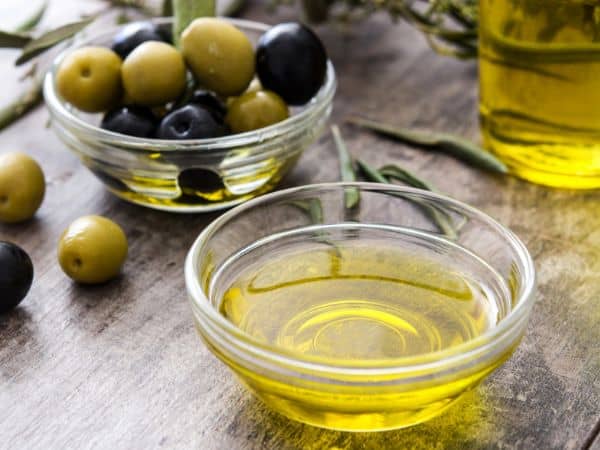Tempted by junk food but resist because of the excessive oil used in that dish?
“what kind of question is that”
Well don’t blame yourself, it is a very human reaction to this statement.
Does it feel like a toxic relationship?
Your taste buds want that oily burger but you move on with a stone on your heart to protect your health.
But, hey! the heart wants what it wants.
Some heart wants burgers, some want fries, but what do both burgers and fries want?
Oil, yes oil.
Let us talk about this one ingredient that is very important for the taste of your food and your neglected health but is very difficult to choose.
5 Best Oils for Cooking At High Temperatures
Here is a list of the oils that are used for cooking at high temperatures. Oils do affect the taste of your food. Thus if you had no idea of what oil to be used for different recipes here’s your guide to the basics of cooking.
#1. Avocado Oil

Smoke point- 500℉
Missing mayonnaise?
Add avocado oil. Avocado oil is considered as Healthiest Oil for Frying, its high smoke point helps with cooking, stir-frying, and grilling.
Also, the neutral taste of avocado enables you to use it in other food items like mayonnaise and even in marinades.
#2. Expeller-Pressed Canola Oil

Smoke point- 400-450℉
Canola oil is always considered a solid choice for frying, as it is one of the Best Cooking Oils for Heart health.
Studies also show that this oil protects the heart from inflammation, blood pressure, and cholesterol.
Canola oil has high heat, and its light flavor makes it the best and most versatile oil for cooking.
#3. Ghee

Smoke point- 465º F
Who is the king of oils?
Ghee is considered the supreme and king of oils. It is a clear-golden frying oil with a high smoke point and a prolonged shelf life.
Ghee is a healthy and natural source of unprocessed fats with various health benefits such as improved immunity, healthy skin, and anti-cancer properties.
#4. Mustard Oil

Smoke point- 480℉
What are your favourite flowers?
whatever it is, can you eat it?
But do you know which flowers you can eat to ease the pain?
Mustard flowers, so no more roses, only mustard.
Mustard oils are best used for frying, grilling, and roasting across countries. Rejoice if you’re using mustard oil for cooking as it ranks among the best Foods for Inflammation due to its high alpha-linolenic acid (ALA) content.
With its antimicrobial properties, mustard oil fights bad bacteria giving you a healthy heart and body.
#5. Virgin Olive Oil

Smoke point- 420°F
Enough of virgin mary!
After reading this it will only be virgin olive oil.
Virgin olive oil is an unrefined oil, which means that no chemicals or heat were used to draw the oil from the fruit. While there are less stringent production regulations for virgin olive oil, it still retains the olive’s purity and flavor.
So, now you know what are the best oils for cooking at high temperatures.
Still, considering some other oils for everyday cooking? Let’s have a look at the factors you should consider before deciding on cooking oil.
What to Consider before You Choose a Cooking Oil?
Wondering why so much emphasis on cooking oil?
Cooking oil is the most basic and base ingredient for any dish, hence it is important to have complete knowledge about the food we eat.
In this era of pollution and spoiled eating habits, it is very important to have the right knowledge of the best oils for cooking at high temperatures.
Here is what you need to know.
#1. Oxidative Stability
When we are talking about oils, it is important to have some knowledge about the oils when exposed to high temperatures.
When oils are exposed to heat for longer periods of time, their composition makes them oxidize faster.
It indicates it has reacted with oxygen, producing dangerous chemicals and hazardous by-products.
It is an important fact to keep in mind, that oxidation is one of the reasons you should not keep using the same deep-frying oil.
Here are the three key elements that affect an oil’s oxidative stability:
- Quantity of naturally occurring antioxidants,
- Kind of lipids it contains,
- Technique of processing and manufacture.
The greater an oil’s resistance to reacting with oxygen and breaking down, the better it is for cooking.
#2. Smoke Point
When an oil reaches its burning point, it ceases to shimmer and begins to smoke. This is known as the smoke point of the oil.
Oils’ smoke points range widely, from less than 250°F to more than 500°F.
Smoke point is affected by the oil’s quality, the type of heat you are using, the amount of air in the oil container, and the amount of free fatty acids (FFA) it contains.
#3. Natural or Refined
Level of refining vs Refined production—The war from ages!!
To make the oils appropriate for consumption, refining typically includes high heat, high pressure, or chemicals to bleach, deodorize, and neutralize the oils.
Natural antioxidants are removed during this process, which also increases the susceptibility of refined oils to the unfavourable chemical changes that cooking causes.
Canola oil, sunflower oil, and safflower oil are a few examples of commonly available refined oils.
For this reason, many home cooks choose to switch to cold-pressed or expeller-pressed varieties for high temp cooking.
#4. Amount of MUFAs (Mono-Unsaturated Fatty Acids) and Saturated Fats
Oleic acid is a key MUFA in the diet. Olive and canola oils are examples of vegetable oils that are high in MUFAs.
Although animal fat contains a fair amount of MUFAs, unlike most plant-based oils, it also contains a fair amount of saturated fatty acids (SFA), making it unsuitable for consumption as a MUFA source.
There is little impact on total cholesterol levels when MUFAs take the role of carbohydrates in the diet.
Total cholesterol levels often go down when MUFAs replace SFA in the diet.
Good Sauté and a Great Sauté is just a matter of the right oil.”
If you use an oil frequently, you not only need to know the best oils for cooking at high temperatures but also consider these other factors before choosing.
While polyunsaturated fat oils are easily oxidized, especially after heating, saturated fat offers no benefits.
An oil strong in its antioxidant profile and monounsaturated fat looks to be beneficial for heart health and retains many of its health benefits after cooking.
Choose healthily, choose wisely.